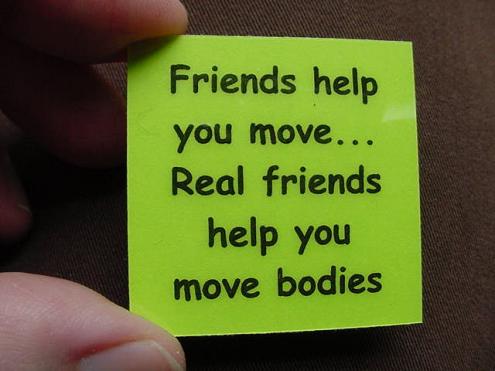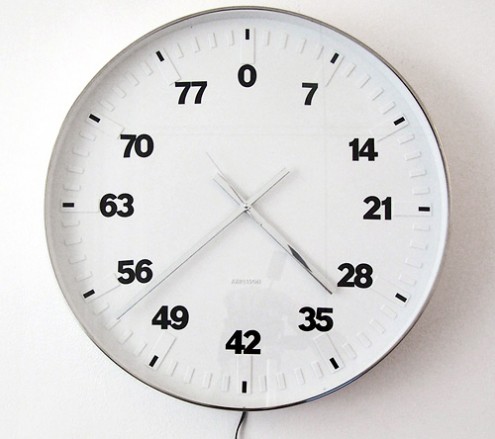
Courtesy Shutterstock
- Prioritize your health. You cannot be your best or help others if you’re mentally or physically sick. It is never selfish to share your feelings, exercise regularly, or visit a doctor. This is how we put on our own oxygen mask before helping others. It is the foundation for everything that follows.
- Create what excites you (not others). Not being true to one’s self is the number one regret of the dying. When deciding what you want to do, never let a family member, friend, society, or logic decide for you. Follow your heart or die with regret.
- Take time off. Working too much is the number two regret of the dying. So enjoy downtime on weekends, nights, and periodic vacations. Don’t work extra hard for money you don’t need. Enjoy the limited time we’re given instead.
- Keep a calendar. You can’t spend your time with purpose without keeping a life calendar. Failure to keep or outsourcing your calendar is a great way to let others decide how, where, or who you spend your time with, which is how we end up unhappy.
- Swallow your pride. Hey, you over there. You’re not that special. You’re one of billions of humans, most of which have done much more impressive stuff than you. So please, suppress your ego and accept your averageness. You are a social creature and not the exception. So act like it, and you’ll enjoy life a whole lot more.
- Count your blessings. This is hands down the fastest way to happiness, regardless of circumstances. Harvard research proves this.
- Stay curious. Formal education is overrated. Asking lots of questions everyday is not. So ask questions, even big, broad, and hard ones. Seek truth. Talk to people smarter than you. Read books. Watch documentaries. Enroll in classes. Learn something new at an old age. Then learn something else. Do this again, and again, and again. This keeps the mind active and helps us grow, which is a huge factor in living large and finding fulfillment.
- Invest in relationships. You don’t want to live or die alone. Like physical fitness, you must spend time on relationships if you want lots of friends and family. At the same time, you must understand that saying “no” to others is saying yes to yourself. True friends and family will support you in that regard, so long as you’re taking an interest in them, initiating social encounters, and reciprocating.
- Be adventurous. Travel the world. Go skydiving. Do something that scares you. Visit the “wrong” side of town. Talk to people that look, act, and think differently than you. Do at least one daily thing that makes you uncomfortable. Doing so challenges your beliefs even better than a formal education.
- Invoke God. Sorry atheists and agnostics. You’re not gonna like this, But prayer, mediation, and recognition of a higher power does wonders for the soul. You might think it’s a placebo effect. But it doesn’t matter. Invoking God works.

Courtesy Shutterstock
I sometimes yell at my immediate family members when arguments arise. I’m not proud of it.
I’ve talked with other anger “patients” that have road rage or easily yell at strangers or people in public, but never at their own family—something I don’t identify with.
Granted, I believe 99% of outbursts are wrong, regardless of who they are directed at. But I feel extra guilty for having better manners with strangers and fellow drivers than the people I love most.
Because of that, 11 years ago I admitted myself to anger therapy. It was a life-changing experience that didn’t fix the problem, but it definitely improved it and gave me great coping mechanisms.
This January, I had an epiphany. “I wonder what would happen to my temper if I willingly removed swear words from my vocabulary?” To find out, that’s exactly what I did this year.
Here’s how it went. Continue reading…

ABC
The world is full of qualitative statements. Exaggerations. Subjectiveness that cannot be measured. The people that make such statements are easily forgotten.
Quantitative statements, on the other hand, leave an impression. They measure your place in life. My father taught me this at an early age.
When I was nine years old, I ran a fast 400 meter dash, which is no easy feat. The thing about the 400 is not a lot of people run it. It’s difficult, because it’s not quite a sprint and not quite a distance race. As such, few amateurs compete in it. At least that was the case when I ran it.
So my father encouraged me to run the 400. I did. All the way to the ’88 state finals. Here’s how it happened: Continue reading…

Here’s some scientifically tabulated advice. They’re called the top five regrets of the dying. In short, a nurse that took care of lots of people on their deathbeds asked and recorded their most common regrets. They are as follows, along with my pithy commentary: Continue reading…

Lindsey and I have been blessed with many genuine friends — ones that make us laugh, can celebrate our accomplishments, and extend considerate help.
This week, while visiting one such family, we discovered that they’ve been dealing with some “friends” that reputedly became envious and judgmental of our friends’ recent good fortune. This saddened me. Time is too precious to waste on such superficial friends.
With that in mind, here’s my proven guide to ditching and avoiding fake friends, so you can better enjoy your days in the sun. Continue reading…

Me hiking the Inca Trail
Here’s something you might not know about my work as a writer: 30-40% of my time is spent asking people if I can write for them, while the remaining 60-70% is spent on actually writing.
In other words, I’m either a writer who knows how to sell or a salesman who knows how to write. Consequently, I would’t have survived the past 15 years if I hadn’t asked thousands of people each year to let me write for them. I would have wilted long ago had I listened to the few rouge naysayers that rudely tell me to get lost sometimes.
Case in point: of the hundreds of emails I send on a monthly basis, the vast majority are ignored. Continue reading…
 Does .99 cent pricing really work? Wouldn’t it be easier to round everything to the nearest dollar?
Does .99 cent pricing really work? Wouldn’t it be easier to round everything to the nearest dollar?
The answer to both those questions is a resounding “yes.” Although it would be easier to round up, stores use so-called psychological pricing because it demonstrably boosts sales by 8%, according to one study of 60,000 mail-order catalogs.
In short, the 30,000 customers that received rounded up pricing spent 8% less than the 30,000 catalog recipients of 99 cent pricing. (Note: The two catalogs were identical except for pricing.)
Granted, this study was performed 20 years ago. But with those kind of gains, the trend is sure to stick around for a long time.
I, Blake Snow, wrote this for my children, but figured you might enjoy it too. According to science, the following habits lead to a healthy, happy, and sustainable lifestyle: Continue reading…

20th Century Fox
Dan Waldschmidt thinks “faking it til you make it” is horrible advice.
But the catchphrase doesn’t mean what Waldshmidt thinks it means (spoken in my best Inigo Montoya accent). A quick Wikipedia search would have informed him that “faking it til you make it” means imitating confidence until you find real confidence—not stretching truth, bending rules, or denying reality, like the columnist mistakenly believes it means.
The first commenter on his syndicated post said it best: “‘Faking’ doesn’t mean “lying.’ It means faking that you are confident, self-assured, knowledgeable—when you, in fact, you’re not. It is excellent advice and helped me overcome many fears and doubts.” Or as Amy Cuddy says, “Fake it ’till you become it.”
Hear, hear! I, too, have faked my way to becoming a responsible adult, marketable guy, husband of one, and father of five. For me, the catchphrase is easily one of the top 10 pieces of advice on finding success.

Excepting more embarrassing personal stuff, here are the changes I hope to make next year:
- I’m gonna speak softly to my kids. I’m loud. With my choice of words and opinions as much as my volume. Children don’t need that extra emotion as they’re figuring out the world. Often times I bark at my kids when they make a mistake or disobey. On a whim recently, I tried something different. Instead of scolding my three year old with a mean face and verbal outburst, I kneeled down, leveled my eyes with hers, softly expressed my disappointment, and encouraged her to change. She lovingly accepted and immediately improved her behavior. After overhearing the exchange, her older sister said, “Dad, I like when you talk to us like that. I feel a warm spirit in the room when you do that.” Then this happened. Then I resolved to speak kindly when disciplining my children from that day forward. Continue reading…
I admire stories like this. Large or small, it takes guts to recompense someone.

I few years ago, I discovered hand clocks. I had seen them before, but digital clocks far out number them because the latter are easier to read and can do a lot more. In any case, I buy and prefer hand clocks now, because they tell time without making it the focal point of my day. Since you have to look directly at them to read, hand clocks are there when you need them, without starring you down.
Digital clocks, on the other hand, are always looking at you. Whether illuminated in bright green, blue, or red light, it’s impossible to walk past them without getting an update—down to the latest minute even. As a result, digital clock perpetrators have a tendency to count time, as opposed to using it to stay on schedule. At least that was the case for me.
Since making the switch to hand clocks, however, I’m just as on time as I was before. Plus, it’s easier to live in the moment.

Courtesy Shutterstock
I have found, as many before me, that with age comes added responsibility and a much larger to-do list. I’m arguably busier than I’ve ever been in my life with managing a marriage, a new baby, a company, and working on several other projects. Opportunity surrounds us, and I want to take it all in. I hope to learn, experience, and do as much as I can (or even can’t sometimes) throughout my life. I thoroughly enjoy meeting new people, learning new things, and finding other ways of applying the little that I know.
While pondering all of this on my way to Salt Lake City this morning and after catching myself saying “I’m so busy,” to those around me, I couldn’t help but think how this claim might sound to the receiver. Does that phrase add any value to the person listening? Does that make them feel important? If it doesn’t, then do away with it. Continue reading…
I teach Sunday School once a month to a small group of boys. Last week, I taught a subject that is dear to my heart: using time wisely. Spiritual advice aside, the lesson also included some excellent secular counsel, in the form of the following short story: Continue reading…







 Does .99 cent pricing really work? Wouldn’t it be easier to round everything to the nearest dollar?
Does .99 cent pricing really work? Wouldn’t it be easier to round everything to the nearest dollar?



